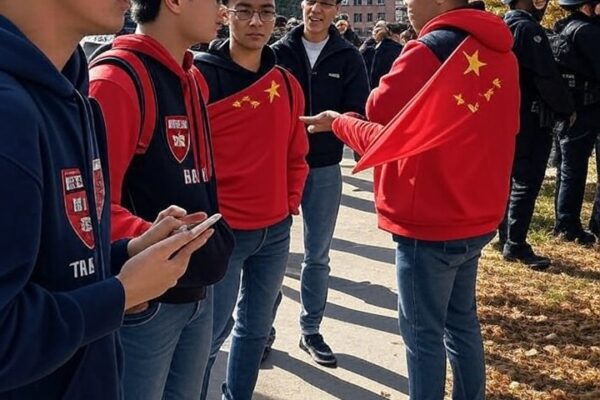
Category: Americas

Harvard’s Scandal: Survey Exposes Chinese Students’ Loyalty
Harvard’s CCP controversy grows as IJ-Reportika survey shows 76% of Chinese students plan to return to China, raising questions of loyalty amid espionage fears.

Putin Rejects Trump’s Vatican Push for Peace Talks
Tensions rise as Russian President Putin rejects Trump’s proposal for peace talks at the Vatican. Meanwhile, Trump and Zelenskyy trade accusations amid Russia’s largest drone strike on Ukraine.

Trump’s Middle East Diplomacy: Meeting a (Former) Terrorist, Trade Deals and Beyond
Explore President Trump’s bold Middle East diplomacy in May 2025, including his controversial meeting with Syria’s Ahmad al-Sharaa, a former terrorist, and the decision to lift sanctions. Discover the implications for regional stability and U.S. foreign policy in this in-depth analysis.

China Considers Tackling Fentanyl Crisis to Kickstart Trade Talks with U.S.
Discover the latest on China’s potential move to address the fentanyl crisis to kickstart trade talks with the US. Explore smuggling routes, production hubs, and the impact on US-China relations in this investigative news report.

Canada’s Carney Declares Victory, Vows to Defy Trump’s Threats
Prime Minister Mark Carney declares victory in Canada’s 2025 election, vowing to resist Trump’s tariffs and annexation threats. The Liberal Party secures a fourth term amid a surge of nationalism.

Amazon Cancels Orders from Asian Suppliers Amid Tariff Concerns
Amazon cancels orders from China and Asian suppliers amid Trump’s tariff announcement, impacting vendors and raising supply chain concerns.

Beijing AI Institute Criticizes US Blacklist Inclusion
Beijing AI Institute Criticizes US Blacklist Inclusion, Calls for Reversal Amid Global Cooperation Concerns

U.S. Sanctions Chinese Officials Over Hong Kong Crackdown and Tibet Restrictions: Trump Signals Human Rights Focus
U.S. Sanctions Chinese Officials Over Hong Kong Crackdown and Tibet Restrictions: Trump Signals Human Rights Focus



